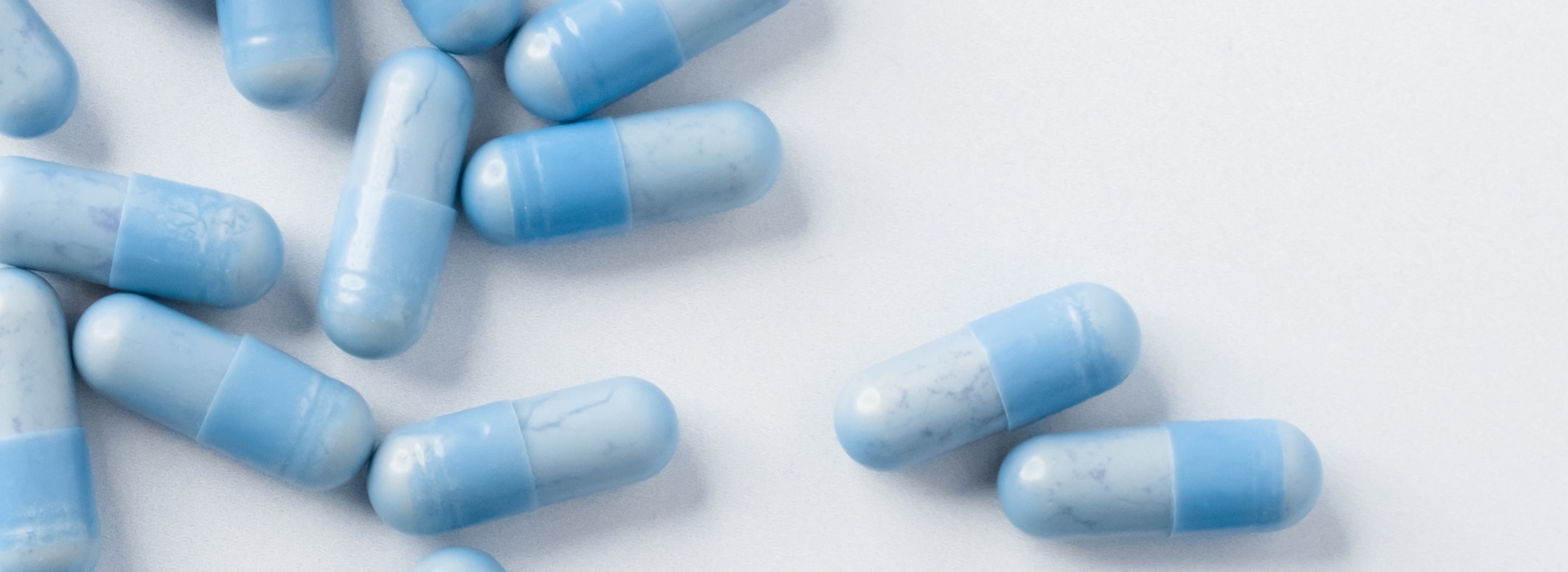What is Blue Light?

Did you know that blue light makes up 30% of the rays from the sun while UV light only comprises 5% of sunlight? Blue light is not just a new trend or buzzword – the impact on the skin from blue light is real and serious. Do you ever wonder why your skin still looks sun damaged even though you’ve been using an SPF? Even though your SPF has been protecting your skin from UV light, you may not have been protecting your skin from blue light. When you think of blue light you may think of the artificial blue light from electronic devices, whilst blue light does come from laptops and phones, the main source of blue light actually comes from the sun. With more focus on light than ever before, our skin researchers are here to explain what blue light is, how blue light from the sun shouldn’t be underestimated and five cell protecting nutrients to help shield your skin from this external aggressor.
What is light?
Natural light from the sun is made up of lots of different colours. You can see the various colours in natural light when the light is broken down by crystals in a window or a prism. The blue colour shows you that there’s blue light from sunlight.
What is Blue Light?
Now let’s talk about blue light. Blue light is a high energy, high frequency component of the natural light spectrum – with a wavelength between 400 and 500 nm, as such, it is also referred to as HEV light (high energy visible light). The impact of blue light may be more considerable than UVA and UVB rays, as it penetrates deeper into the dermis layer of the skin.
Blue light devices
Majority of blue light comes from the sun, yet individuals are more focused on the blue light from electronic devices. Of course, there is artificial blue light that comes from devices used daily such as phones, laptops, and television screens.
Research shows artificial blue light contributes to only 4% of your daily exposure to blue light where the sun is 96%. Although the impact is minimal, we should still be aware of potential accumulative damage of all sources of blue light.
What is the Blue Light impact on skin?
Research suggests free radical induced damage from blue light takes place at this deeper level, potentially causing longer term, structural damage and more. What does this mean for your skin? Damage to collagen and elastin, resulting in fine lines, deep wrinkles, and sagging. Melanocytes can be damaged, resulting in discolouration, brown spots, and pigmentation. Furthermore, it damages the lipid layers between the skin cells in the stratum corneum, compromising the skin barrier function, leading to red and reactive skin. This blue light can also trigger inflammation, causing redness in the skin.
Five cell-protecting ingredients:
So how can you protect your skin from damaging blue light? Well, you are all familiar with SPF, now say hello to SBF (Skin Blue Filter).
Shop Skin Blue Filter
Our new specialist Skin Blue Filter formula to combat against the outdoor environmental aggressor blue light. Our skin researchers have selected five key ingredients in this innovative supplement based on published literature demonstrating the ingredients that protect and repair the skin from blue light. These five ingredients are:
- Vitamin E – a key antioxidant**that protects our skin cells as well as DNA and lipid layers.
- Olive fruit extract– provides an array of skin and anti-ageing benefits such as reducing appearance of skin discolouration, pigmentation, and uneven skin tone, resulted from too much blue light exposure.
- Lutein + Zeaxanthin – increases skin luminosity, elasticity and gives skin a more even, radiant skin tone.
- Biotin a key B vitamin, also known as vitamin B7, which contributes to the maintenance of normal skin health*.
Skin Blue Filter research
In our recent 8-week pilot study, we compared skin supported by Skin Blue Filter to controls when not taking Skin Blue Filter. The results showed that skin protected by Skin Blue Filter resulted in 60% less damage to their lipid barrier when exposed to blue light.
Even though we are all familiar with SPF and protecting our skin from UV rays, the blue light from the sun deserves greater focus and priority. Vitamin E, olive fruit extract, lutein, zeaxanthin, and biotin can minimise the blue light impact on your skin. Use this as part of your 100% skincare approach, by combining it with your physical SPF sun protector cream.
*Biotin contributes to the maintenance of normal skin health
**Vitamin E contributes to the protection of cells from oxidative stress
